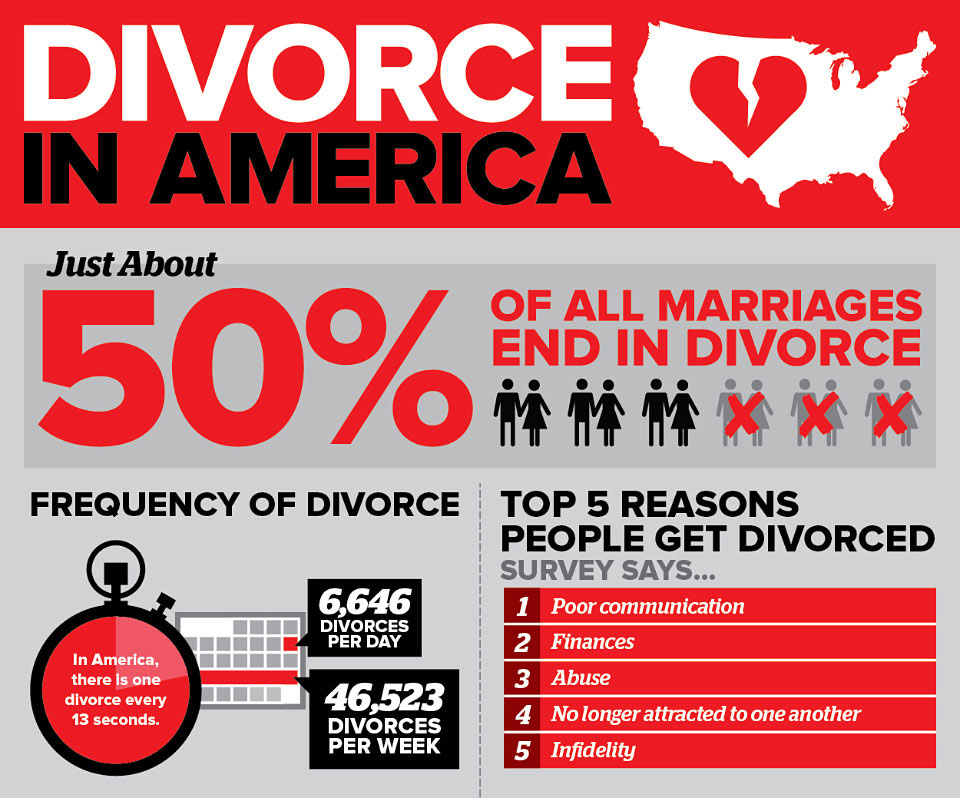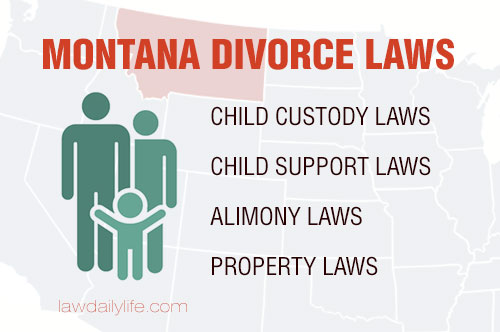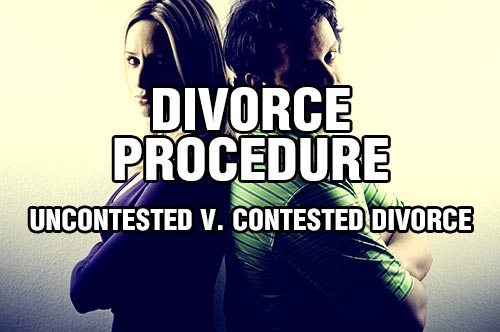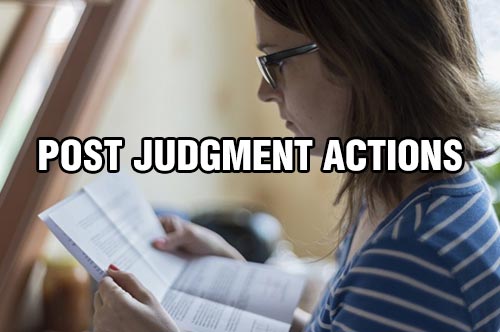The following is a summary of Montana’s divorce laws. In some cases, the exact text of the statute has been simplified and/or modified to provide for easier understanding. For a more specific understanding of the laws, you should consult the full Montana Code or ask an attorney how the law might apply to your particular situation.

Montana Divorce Grounds
Residency Laws.
At least one spouse, at the time the divorce papers are filed, must have resided in Montana for at least 90 days preceding the filing of the divorce papers, or been stationed in Montana while in the armed services for at least 90 days preceding filing the divorce papers.
-From 40-4-104 of the Montana Code.
Grounds for Divorce.
A divorce in Montana can be granted if the court finds that the marriage is irretrievably broken. The court must support this finding with evidence that the parties have lived separate and apart for more than 180 days preceding filing the divorce papers, or that there is serious marital discord that adversely affects the attitude of one or both of the parties towards the marriage.
-From 40-4-104 of the Montana Code.
Additional Information.
Each party is required to serve on the other party a final declaration of disclosure and a current income and expense declaration. The failure of a party to disclose an asset or liability on the final declaration of disclosure is presumed to be grounds for the court, without taking into account the equitable division of the marital estate, to award the undisclosed asset to the opposing party or the undisclosed liability to the noncomplying party. If either party commits perjury in the final declaration of disclosure, in addition to any civil or criminal remedies sought, the court may set aside the judgment or part of the judgment, if the perjury is discovered within 5 years from the date of entry of judgment.
-From 40-4-253 of the Montana Code.
If the parties have minor children, and the court finds that it would be in the best interest of the minor children, it shall order the parties to attend a court-sanctioned program. The program may be divided into sessions. The program must be educational in nature and may not be designed for individual therapy.
-From 40-4-226 of the Montana Code.
Montana Alimony Laws
The following is a summary of Montana alimony laws, and is by no means intended to be an all-inclusive description of what to expect in your particular case. In some cases, the exact text of the statute may have been simplified and/or modified to provide for easier understanding. For a more specific understanding of the laws, you should consult the full Montana Code and/or consult with an attorney about how the law might apply to your particular situation.
Montana laws allow the court to may grant alimony for either spouse only if it finds that the spouse seeking alimony:
(a) lacks sufficient property to provide for his reasonable needs; and
(b) is unable to support himself through appropriate employment or is the custodian of a child whose condition or circumstances make it appropriate that the custodian not be required to seek employment outside the home.
Alimony shall be awarded in such amounts and for such periods of time as the court deems just, without regard to marital misconduct, and after considering all relevant facts including:
(a) the financial resources of the party seeking alimony, including marital property awarded to him, and his ability to meet his needs independently, including the extent to which a provision for support of a child living with the party includes a sum for that party as custodian;
(b) the time necessary to acquire sufficient education or training to enable the party seeking alimony to find appropriate employment;
(c) the standard of living established during the marriage;
(d) the duration of the marriage;
(e) the age and the physical and emotional condition of the spouse seeking alimony; and
(f) the ability of the spouse from whom maintenance is sought to meet his needs while meeting those of the spouse seeking alimony.
-From 40-4-203 of the Montana Code.
Montana Child Custody Laws
The following is a summary of Montana child custody laws, and is by no means intended to be an all-inclusive description of what to expect in your particular case. In some cases, the exact text of the statute may have been simplified and/or modified to provide for easier understanding. For a more specific understanding of the laws, you should consult the full Montana Code and/or consult with an attorney about how the law might apply to your particular situation.
Child Custody Guidelines.
Montana laws use guidelines to determine custody in accordance with the best interest of the child. The court shall consider all relevant factors, which may include but are not limited to:
(a) the wishes of the child’s parent or parents;
(b) the wishes of the child;
(c) the interaction and interrelationship of the child with the child’s parent or parents and siblings and with any other person who significantly affects the child’s best interest;
(d) the child’s adjustment to home, school, and community;
(e) the mental and physical health of all individuals involved;
(f) physical abuse or threat of physical abuse by one parent against the other parent or the child;
(g) chemical dependency or chemical abuse on the part of either parent;
(h) continuity and stability of care;
(i) developmental needs of the child;
(j) whether a parent has knowingly failed to pay birth-related costs that the parent is able to pay, which is considered to be not in the child’s best interests;
(k) whether a parent has knowingly failed to financially support a child that the parent is able to support, which is considered to be not in the child’s best interests;
(l) whether the child has frequent and continuing contact with both parents, which is considered to be in the child’s best interests unless the court determines, after a hearing, that contact with a parent would be detrimental to the child’s best interests. In making that determination, the court shall consider evidence of physical abuse or threat of physical abuse by one parent against the other parent or the child.
(m) adverse effects on the child resulting from continuous and vexatious parenting plan amendment actions.
-From 40-4-212 of the Montana Code.
Moving with the Child.
A parent who intends to change residence must provide written notice to the other parent. If a parent’s change in residence will significantly affect the child’s contact with the other parent, notice must be served personally or given by certified mail not less than 30 days before the proposed change in residence, and must include a proposed revised residential schedule. Proof of service must be filed with the court that adopted the parenting plan. Failure of the parent who receives notice to respond to the written notice or to seek amendment of the residential schedule within the 30-day period constitutes acceptance of the proposed revised residential schedule.
-From 40-4-217 of the Montana Code.
Access to Records.
Notwithstanding any other provision of law, access to records and information pertaining to a minor child, including but not limited to medical, dental, law enforcement, and school records, may not be denied to a parent who is a party to a parenting plan.
-From 40-4-225 of the Montana Code.
Parenting Plan.
A parenting plan must be submitted to the court, including the allocation of parenting functions. “Parenting functions” means those aspects of the parent-child relationship in which the parent makes decisions and performs functions necessary for the care and growth of the child, which may include:
(a) maintaining a loving, stable, consistent, and nurturing relationship with the child;
(b) attending to the daily needs of the child, such as feeding, physical care, development, and grooming, supervision, spiritual growth and development, health care, day care, and engaging in other activities that are appropriate to the developmental level of the child and that are within the social and economic circumstances of the particular family;
(c) attending to adequate education for the child, including remedial or other education essential to the best interest of the child;
(d) ensuring the interactions and interrelationship of the child with the child’s parents and siblings and with any other person who significantly affects the child’s best interest; and
(e) exercising appropriate judgment regarding the child’s welfare, consistent with the child’s developmental level and the family’s social and economic circumstances.
Based on the best interest of the child, a final parenting plan may include, at a minimum, provisions for:
(a) designation of a parent as custodian of the child, solely for the purposes of all other state and federal statutes that require a designation or determination of custody, but the designation may not affect either parent’s rights and responsibilities under the parenting plan;
(b) designation of the legal residence of both parents and the child;
(c) a residential schedule specifying the periods of time during which the child will reside with each parent, including provisions for holidays, birthdays of family members, vacations, and other special occasions;
(d) finances to provide for the child’s needs;
(e) any other factors affecting the physical and emotional health and well-being of the child;
(f) periodic review of the parenting plan when requested by either parent or the child or when circumstances arise that are foreseen by the parents as triggering a need for review, such as attainment by the child of a certain age or if a change in the child’s residence is necessitated;
(g) sanctions that will apply if a parent fails to follow the terms of the parenting plan, including contempt of court;
(h) allocation of parental decision making authority regarding the child’s education, spiritual development, and health care and physical growth;
(i) the method by which future disputes concerning the child will be resolved between the parents, other than court action; and
(j) the unique circumstances of the child or the family situation that the parents agree will facilitate a meaningful, ongoing relationship between the child and parents.
Each parent may make decisions regarding the day-to-day care and control of the child while the child is residing with that parent, and either parent may make emergency decisions affecting the child’s safety or health. When mutual decision making is designated in the parenting plan but cannot be achieved regarding a particular issue, the parents shall make a good faith effort to resolve the issue through any dispute resolution process provided for in the final parenting plan.
-From 40-4-234 of the Montana Code.
Montana Child Support Laws
The following is a summary of Montana child support laws, and is by no means intended to be an all-inclusive description of what to expect in your particular case. In some cases, the exact text of the statute may have been simplified and/or modified to provide for easier understanding. For a more specific understanding of the laws, you should consult the full Montana Code and/or consult with an attorney about how the law might apply to your particular situation.
Immediate Income Deduction.
Every order for child support is subject to an immediate income deduction order, unless there is good cause not to require immediate deduction, or there is an alternative written agreement between the parties and, if also a party to the action, the Department of Public Health and Human Services. The payment of child support must provide sufficient security to ensure compliance with the arrangement. The alternative written agreement must be approved and entered by the court.
-From 40-5-315 of the Montana Code.
Termination Date.
Provisions for the support of a child are terminated by the emancipation of the child, or the child’s graduation from high school if the child is enrolled in high school, whichever occurs later. Child support obligations don’t terminate upon the death of a parent obligated to pay child support. When a parent obligated to pay child support dies, the amount of support may be modified, revoked, or commuted to a lump-sum payment, to the extent just and appropriate in the circumstances.
-From 40-4-208 of the Montana Code.
Montana Property Division Laws
The following is a summary of Montana property division laws, and is by no means intended to be an all-inclusive description of what to expect in your particular case. In some cases, the exact text of the statute may have been simplified and/or modified to provide for easier understanding. For a more specific understanding of the laws, you should consult the full Montana Code and/or consult with an attorney about how the law might apply to your particular situation.
Montana laws allow the court, without regard to marital misconduct, to equitably divide the property and assets belonging to either or both party, however and whenever acquired, and however titled. In dividing the property, the court shall consider the following factors:
(1) The duration of the marriage and prior marriage of either party;
(2) The age, health, station, occupation, amount and sources of income, vocational skills, employability, estate, liabilities, and needs of each of the parties;
(3) Custodial provisions;
(4) Whether the apportionment is in lieu of or in addition to maintenance;
(5) The opportunity of each for future acquisition of capital assets and income;
(6) The contribution or dissipation of value of the respective estates; and
(7) The contribution of a spouse as a homemaker or to the family unit.
-From 40-4-202 of the Montana Code.









